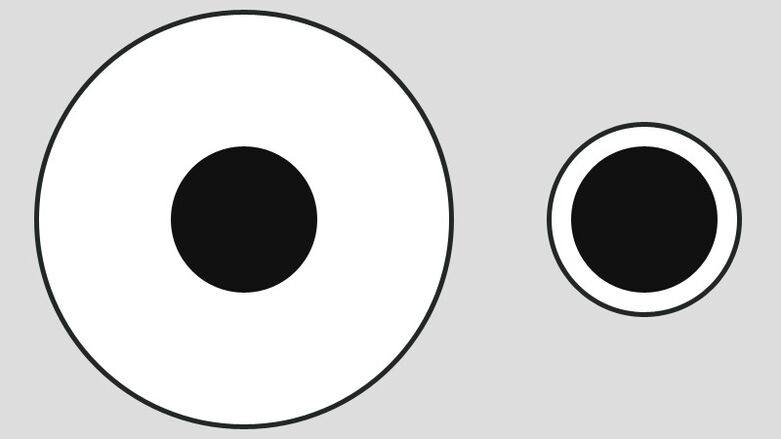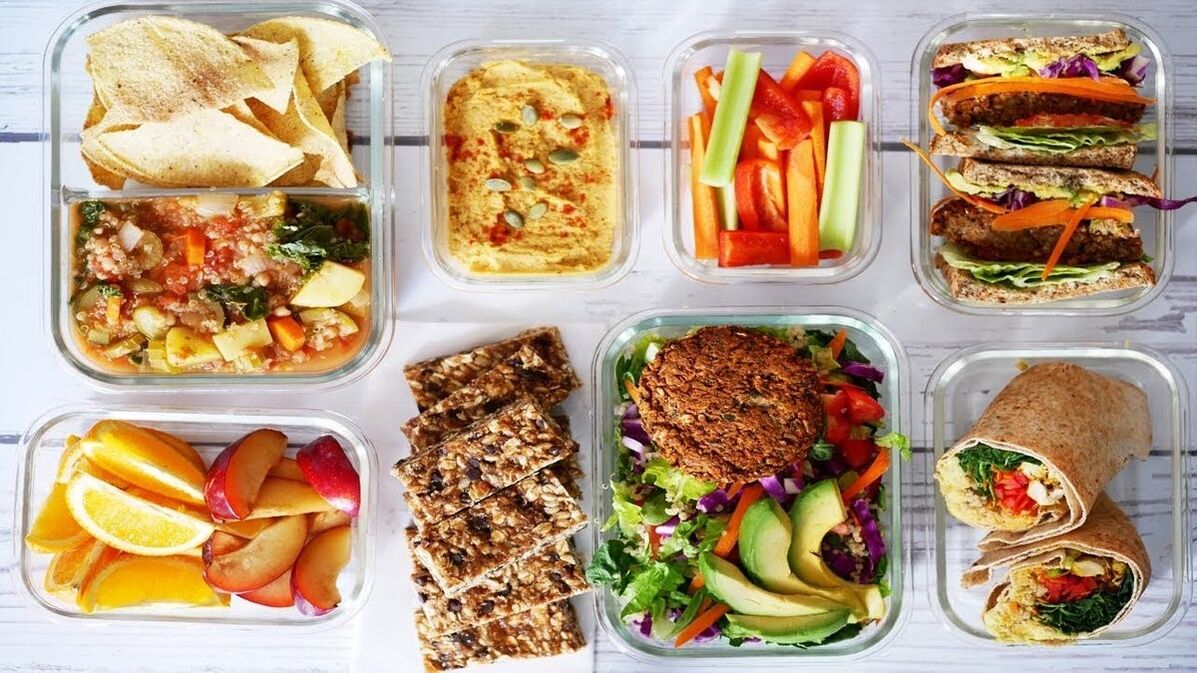
Proper nutrition for weight loss has nothing to do with strict dietary restrictions, fasting, and rejection of your favorite foods. First of all, this is self-care, the choice of food and what makes you feel good and improves your quality of life.
In this case, the all-or-nothing principle does not work. No need to try to change everything at once in a day-this usually leads to malfunctions and leads to overeating. It is best to make some small changes in stages. In the long run, this will help you get more results. As your small changes become a habit, add healthier rules.
The main thing to remember is that striving for health is a lifelong journey. You should enjoy it, not stress.
Why eat healthy food?
In addition to helping you maintain a healthy weight, a healthy diet that includes fruits, vegetables, whole grains, dairy products, and protein has other important benefits.
Malnutrition is the most common cause of immunodeficiency worldwide. Scientists associate the occurrence of many chronic diseases with improper diet. For example, there are 38, 500 men and 67, 000 women in one study. After 8 to 12 years of observation, it has been found that junk food can exacerbate the degradation of biomarkers, and can also cause heart disease, high blood pressure (hypertension), type 2 diabetes, osteoporosis and certain types of cancer.
There is evidence that 30–35% of cancer deaths are related to diet, 25–30% are caused by tobacco, 15–20% are caused by infection, and the remaining percentage are caused by other factors, such as radiation. Stress, insufficient physical activity, environmental pollution, etc.
Malnutrition not only affects physical health, but also affects mental health. According to statistics from the Mental Health Foundation, two-thirds of people who eat fresh fruits and vegetables every day have no mental health problems.
Therefore, the link between good nutrition and healthy weight, reduced risk of chronic diseases and overall health is too important to ignore.
How long does it take to develop eating habits?
Nowadays, everyone is looking for a way to lose weight quickly. It takes time to change habits that promote weight loss and last for a long time. Recent studies have confirmed this.
For a long time, people thought that in order to develop a stable habit, 21 to 28 days is enough. The statement is mainly related to the activities of a doctor named Maxwell Maltz. In the 1950s, he was a plastic surgeon and he noticed that it took at least 21 days for patients to learn to look in the mirror after surgery. In addition, he noticed that people whose legs or arms had been amputated took the same amount of time to lose the phantom limb.
As a result, he proposed this idea in the book "Neural Networks" published in 1960. Subsequently, this idea was accepted by many doctors, public figures, and coaches. Over the years, the term "minimum" has ceased to exist, and 21 days has actually become the law of "science".
What is the new research talking about?
Philip Lally (Philip Lally) is a health psychology researcher at University College London. In a paper published in the European Journal of Social Psychology, Larry and her analysis team set out to find out how long it actually takes to develop a habit.
The study involved 96 people. Everyone chose a new habit, which lasted for 12 weeks, and reported every day whether they followed the habit.
Some people use simple rules, such as "drink a bottle of water at lunchtime. "Others chose more challenging tasks, such as running 15 minutes before lunch. After 12 weeks, the researchers analyzed the data to determine the time it takes for each person to start a new behavior to automatically execute the behavior.
On average, this took more than 2 months, or 66 days. However, the time required to develop a new habit will vary greatly depending on the behavior, person, and environment. Overall, the study took 18 to 254 days.
How to eat correctly, and what habits will help in the process of weight loss?
1. Not enough calories
The main idea is as old as the world-You need to spend more calories than you burned. . .
Negative caloric balance forces the body to use the accumulated reserves to provide the body with the necessary energy. This energy mainly comes from the storage of carbohydrates and fats in the body.
In the weight loss phase, the daily calorie deficit should be between 300 and 500 kcal.
In addition, it is important to monitor the indicators of BJU (protein, fat and carbohydrates).
2. Reduce the fat content in your diet
According to the recommendations of the World Health Organization (World Health Organization), priority should be given to the consumption of unsaturated fats (found in fish, avocados, nuts, etc. ) and reduction of saturated fats (fat, meat, butter, palm, coconut oil, etc. ), And industrial trans fats found in baked, smoked, fried foods, convenience foods, pies, French fries, biscuits, etc.
The fat content in the weight loss diet should not exceed 30% of the total food intake, the saturated food content should be less than 10%, and the trans fat content should not exceed 1%.
There is no need to completely give up fat in the diet. They are necessary to provide the body with polyunsaturated fatty acids (linoleic acid and alpha-linolenic acid). They are not produced by the human body and are mainly found in vegetable oils and fish.
3. Get enough protein
Protein is the most important part of the human body and must meet 40% of the total energy requirement.
When you are trying to lose weight, a protein-rich diet can keep you full for a long time by affecting the hunger hormone ghrelin. Protein can also offset muscle loss in the diet. The more muscle mass, the more energy it consumes and the higher the calorie requirement.
Animal-derived protein has higher biological value than plant protein. However, they also often contain excess fat and cholesterol, so they should be consumed in moderation.
According to research, a high-protein breakfast can reduce food cravings and calorie intake throughout the day.
4. Avoid simple carbohydrates
Overall, the carbohydrates in the diet should be about 30%. They are usually divided into simple and complex. Dealing with the latter takes more time and produces less insulin, which helps keep you full and avoid overeating.
Simple carbohydrate foods include sugar, white flour, baked goods, jams, sodas, fruit juices, etc. For simple carbohydrates, it is best to choose the first half of the day, that is, when the blood sugar level is low after sleep, the glycogen reserve is reduced and the body needs to restore energy.
For foods rich in carbohydrates, whole grains are ideal because in addition to their high content of minerals and fiber, they can also saturate the body and promote digestion.
As a guide, you can useHarvard Healthy Eating Pyramid. . .
5. If not, but you do want
As you know, "forbidden fruit is sweet. " The more you forbid yourself to do something, the more things you want. If you succumb to the temptation, the inner if feeling will be overcome. This inner makes sense will make some people give up and give up their career.
Therefore, the first step may not be to completely eliminate harmful products, but to reduce the size of components and reduce their frequency of consumption. Over time, you will begin to reduce your cravings for these foods.
6. Avoid drinking beverages that will make you fat
Avoid sodas and juices.A study showed that these beverages are very low in nutrients. If consumed in excess, Americans gained 20% of their weight between 1977 and 2007.
A 0. 5 liter bottle of Coke contains 240 calories and 65 grams of sugar. It has been proven that people who mainly drink water consume an average of 200 calories less per day than people who drink other beverages.
Drink water before meals. A study found that drinking water half an hour before meals can reduce appetite and increase weight loss by 44% within 3 months.
If you are not ready to give up unhealthy drinks immediately, use a simple trick that can deceive your brain.
Take a look at the picture below. Which line is bigger: horizontal or vertical?

In fact, the two lines are the same length, but our brain tends to overestimate the vertical line. In other words, to transfer this knowledge to the subject under consideration, taller cups and mugs appear to us to be larger and more spacious than round and wide cups.
In this way, you can drink 20% less beverage from a tall and thin glass than a wide and thin glass without feeling dissatisfied.
7. Eliminate alcohol
When switching to a proper diet, it is recommended to abstain from alcohol. Why is this necessary?
- Alcohol causes an increase in appetite by acting on neurons. It also increases the likelihood of collapse, unhealthy food choices, and overeating.
- It has a negative impact on digestion, changes the secretion of gastric acid and its motility, resulting in abnormal metabolism.
- Alcohol can linger in the body, which is why many people find edema and weight gain in the morning.
- Drinking alcohol will impair the body's ability to recover from exercise, thereby reducing the ability to burn excess calories through exercise.
- Drinking alcohol can shorten sleep time and quality, which can seriously affect hunger and force people to switch from carbohydrates to fats. According to research, every 30 minutes of lack of sleep is equivalent to an increase of 83 calories throughout the day.
But it is worth clarifying that medium-dose low-alcohol beverages will not cause major harm to the body. 100 ml of dry red wine contains 80 kcal, and 100 ml of beer contains 45 kcal. For comparison, vodka-230 calories per 100 grams, so you can drink a glass of dry wine or a glass of beer every week without affecting your weight.
8. Eat 5 servings of fruits and vegetables
Fruits and vegetables provide the body with fiber, minerals, vitamins and phytochemicals. They perform many important functions in the body and are essential for healthy metabolic processes.
It is recommended that you eat at least two servings of fruits and three servings of vegetables every day (one serving is about 150 grams). It is worth considering that excessive consumption of fruits is not recommended because they contain a lot of fructose compared to low-calorie and nutrient-rich vegetables.
9. Pay attention to the speed of food intake
Eating speed affects portion size and the likelihood of weight gain. Our brain and intestines are in constant communication, so if your brain is distracted while eating, you may not receive the signal of hunger or fullness.
Keep in mind that it takes about 20 minutes on average to obtain this information, so eating slowly can prevent overeating.
In addition, slow eating is associated with more thorough chewing, which also helps maintain weight. Studies comparing different eating speeds show that people who eat faster are 115% more likely to be obese than those who eat slowly.

10. Redefine the way food is prepared
The way you prepare food directly affects your health.
Barbecuing, smoking, frying, and deep frying are all common methods for preparing meat and fish. However, using this method, several potentially toxic compounds (polycyclic and heterocyclic) are produced in the food, which are associated with a variety of chronic diseases, including cancer and heart disease.
Healthy methods include baking, stewing, steaming, etc. They do not cause the formation of these harmful compounds, thus making your food healthier.
11. Eat from small plates
It turns out that the size of the cookware affects your diet. On large plates, people put 30% more food on average than standard plates.
The same amount of food on large and small plates is perceived by the brain in different ways. This is called the Delphi hallucination.

Agree, it seems that the left part is very small. We bet you want a supplement. At the same time, the edge-filled part on the right side panel is felt more, so the feeling will be more satisfying.
12. Reduce condiments and flavor enhancers
The consumption of salt, seasonings, sauces and ketchup should be kept to a minimum. Many of them contain sugar, colors, preservatives, flavor enhancers and stabilizers. They have a negative impact on the function of the gastrointestinal tract.
The WHO recommends no more than 5 grams of iodized salt (about 1 teaspoon) per day. WHO member states have set a goal to reduce global consumption by 30% by 2025. This should help prevent high blood pressure and reduce the risk of heart disease and stroke in adults.
13. Emotional control diet.
Our relationship with food is closely related to emotional health. We don't always eat to satisfy hunger. Many people turn to food to reduce stress or cope with unpleasant emotions such as anxiety, sadness, loneliness or boredom. However, learning healthier coping styles can help you regain control. Serotonin levels play a key role here.
It is a neurotransmitter that can help regulate sleep and appetite, control emotions and suppress pain. Since about 95% of serotonin is produced in the gastrointestinal tract, and the gastrointestinal tract is lined with hundreds of millions of nerve cells, the internal workings of the digestive system not only help digest food, but also control emotions. This isIt makes sense. status.
14. Choose healthy snacks
Snacks are one of the main factors in maintaining a healthy diet and nutrition. If you choose healthy foods with high protein and nutrient content, snacks may be an important part of weight loss. Some of them can even help you stay full throughout the day and reduce cravings for unhealthy foods.
Avoid biscuits and candies, sandwiches and glazed cheese. Instead, use dried fruits, nuts, hummus and vegetable bars, natural yogurt, fruits, etc.

15. Be selective in the supermarket
In supermarkets, the so-called "outer circle" has a self-evident rule. Usually, the healthiest products are located in the surrounding areas-fruits, vegetables, meat, eggs, dairy products, cereals, etc. Packed and processed foods are mostly placed between two rows.
Why are processed foods harmful? Scientists are increasingly drawing the conclusion that processed foods and all their additives, sugar and fiber deficiency, will have a negative impact on the intestinal flora and various bacteria on the wall. As a result, it increases the risk of chronic diseases and creates fertile ground for overeating.
In one study, consumption of processed foods was associated with an increase in cardiovascular disease, while in another study, the risk of death from any cause was increasing.
In addition, special attention must be paid to the labels on the products, which indicate storage conditions and ingredients. Remember, the ingredients are arranged in descending order from highest to lowest. The less the better. Make sure that the product does not contain sweeteners, such as sugar alcohol, monosodium glutamate (E621), formaldehyde (E240), trans fats, dyes (E102, E104, E110, E122, E124, E129), etc.
16. Don't be distracted when eating
A new study claims that the perception of the sound of food intake affects eating habits. The study involved two groups of people who ate crispy foods, one group was wearing white noise headphones, the other group did not. As a result, participants who were distracted by white noise heard fewer food sounds, which made them eat more than those who heard crunching sounds.
Another interesting experiment (the results of which were published in 2016) claimed that scrolling through social networks where you follow the culinary masses or various grocery stores may lead to so-called "visual hunger". In other words, even if you don't actually need food, your body uses the hunger hormone you want to eat to signal your brain.

The main thing to remember in maintaining a healthy relationship with food is: "Food is not the enemy. " Don't focus on the things that shouldn't be eaten. Instead, consider what healthy, new and delicious foods you can add to your diet. Diverse diet. Don't try to change everything at once, gradually form new healthy habits, and don't bear any pressure.
As you know, a balanced diet is at least 50% of the results of the weight loss process! Without it, even the most capable training will not bring the expected results.















































































